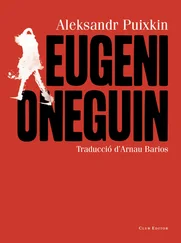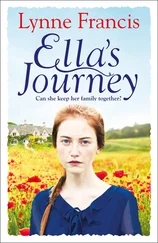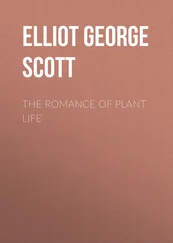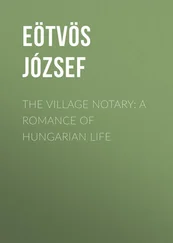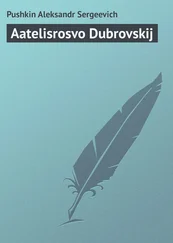Aleksandr Pushkin - Eugene Oneguine [Onegin]. A Romance of Russian Life in Verse
Здесь есть возможность читать онлайн «Aleksandr Pushkin - Eugene Oneguine [Onegin]. A Romance of Russian Life in Verse» весь текст электронной книги совершенно бесплатно (целиком полную версию без сокращений). В некоторых случаях можно слушать аудио, скачать через торрент в формате fb2 и присутствует краткое содержание. Год выпуска: 2007, Жанр: Поэзия, на английском языке. Описание произведения, (предисловие) а так же отзывы посетителей доступны на портале библиотеки ЛибКат.
- Название:Eugene Oneguine [Onegin]. A Romance of Russian Life in Verse
- Автор:
- Жанр:
- Год:2007
- ISBN:нет данных
- Рейтинг книги:4 / 5. Голосов: 1
-
Избранное:Добавить в избранное
- Отзывы:
-
Ваша оценка:
- 80
- 1
- 2
- 3
- 4
- 5
Eugene Oneguine [Onegin]. A Romance of Russian Life in Verse: краткое содержание, описание и аннотация
Предлагаем к чтению аннотацию, описание, краткое содержание или предисловие (зависит от того, что написал сам автор книги «Eugene Oneguine [Onegin]. A Romance of Russian Life in Verse»). Если вы не нашли необходимую информацию о книге — напишите в комментариях, мы постараемся отыскать её.
Eugene Oneguine [Onegin]. A Romance of Russian Life in Verse — читать онлайн бесплатно полную книгу (весь текст) целиком
Ниже представлен текст книги, разбитый по страницам. Система сохранения места последней прочитанной страницы, позволяет с удобством читать онлайн бесплатно книгу «Eugene Oneguine [Onegin]. A Romance of Russian Life in Verse», без необходимости каждый раз заново искать на чём Вы остановились. Поставьте закладку, и сможете в любой момент перейти на страницу, на которой закончили чтение.
Интервал:
Закладка:
A journey to Moscow! To see the world!
Where better?
Where man is not.
I
Impelled by Spring's dissolving beams,
The snows from off the hills around
Descended swift in turbid streams
And flooded all the level ground.
A smile from slumbering nature clear
Did seem to greet the youthful year;
The heavens shone in deeper blue,
The woods, still naked to the view,
Seemed in a haze of green embowered.
The bee forth from his cell of wax
Flew to collect his rural tax;
The valleys dried and gaily flowered;
Herds low, and under night's dark veil
Already sings the nightingale.
II
Mournful is thine approach to me,
O Spring, thou chosen time of love!
What agitation languidly
My spirit and my blood doth move,
What sad emotions o'er me steal
When first upon my cheek I feel
The breath of Spring again renewed,
Secure in rural quietude—
Or, strange to me is happiness?
Do all things which to mirth incline.
And make a dark existence shine
Inflict annoyance and distress
Upon a soul inert and cloyed?—
And is all light within destroyed?
III
Or, heedless of the leaves' return
Which Autumn late to earth consigned,
Do we alone our losses mourn
Of which the rustling woods remind?
Or, when anew all Nature teems,
Do we foresee in troubled dreams
The coming of life's Autumn drear.
For which no springtime shall appear?
Or, it may be, we inly seek,
Wafted upon poetic wing,
Some other long-departed Spring,
Whose memories make the heart beat quick
With thoughts of a far distant land,
Of a strange night when the moon and—
IV
'Tis now the season! Idlers all,
Epicurean philosophers,
Ye men of fashion cynical,
Of Levshin's school ye followers, [70] Levshin—a contemporary writer on political economy.
Priams of country populations
And dames of fine organisations,
Spring summons you to her green bowers,
'Tis the warm time of labour, flowers;
The time for mystic strolls which late
Into the starry night extend.
Quick to the country let us wend
In vehicles surcharged with freight;
In coach or post-cart duly placed
Beyond the city-barriers haste.
V
Thou also, reader generous,
The chaise long ordered please employ,
Abandon cities riotous,
Which in the winter were a joy:
The Muse capricious let us coax,
Go hear the rustling of the oaks
Beside a nameless rivulet,
Where in the country Eugene yet,
An idle anchorite and sad,
A while ago the winter spent,
Near young Tattiana resident,
My pretty self-deceiving maid—
No more the village knows his face,
For there he left a mournful trace.
VI
Let us proceed unto a rill,
Which in a hilly neighbourhood
Seeks, winding amid meadows still,
The river through the linden wood.
The nightingale there all night long,
Spring's paramour, pours forth her song
The fountain brawls, sweetbriers bloom,
And lo! where lies a marble tomb
And two old pines their branches spread—
" Vladimir Lenski lies beneath,
Who early died a gallant death ,"
Thereon the passing traveller read:
" The date, his fleeting years how long—
Repose in peace, thou child of song ."
VII
Time was, the breath of early dawn
Would agitate a mystic wreath
Hung on a pine branch earthward drawn
Above the humble urn of death.
Time was, two maidens from their home
At eventide would hither come,
And, by the light the moonbeams gave,
Lament, embrace upon that grave.
But now—none heeds the monument
Of woe: effaced the pathway now:
There is no wreath upon the bough:
Alone beside it, gray and bent,
As formerly the shepherd sits
And his poor basten sandal knits.
VIII
My poor Vladimir, bitter tears
Thee but a little space bewept,
Faithless, alas! thy maid appears,
Nor true unto her sorrow kept.
Another could her heart engage,
Another could her woe assuage
By flattery and lover's art—
A lancer captivates her heart!
A lancer her soul dotes upon:
Before the altar, lo! the pair,
Mark ye with what a modest air
She bows her head beneath the crown; [71] The crown used in celebrating marriages in Russia according to the forms of the Eastern Church. See Note 28.
Behold her downcast eyes which glow,
Her lips where light smiles come and go!
IX
My poor Vladimir! In the tomb,
Passed into dull eternity,
Was the sad poet filled with gloom,
Hearing the fatal perfidy?
Or, beyond Lethe lulled to rest,
Hath the bard, by indifference blest,
Callous to all on earth become—
Is the world to him sealed and dumb?
The same unmoved oblivion
On us beyond the grave attends,
The voice of lovers, foes and friends,
Dies suddenly: of heirs alone
Remains on earth the unseemly rage,
Whilst struggling for the heritage.
X
Soon Olga's accents shrill resound
No longer through her former home;
The lancer, to his calling bound,
Back to his regiment must roam.
The aged mother, bathed in tears,
Distracted by her grief appears
When the hour came to bid good-bye—
But my Tattiana's eyes were dry.
Only her countenance assumed
A deadly pallor, air distressed;
When all around the entrance pressed,
To say farewell, and fussed and fumed
Around the carriage of the pair—
Tattiana gently led them there.
XI
And long her eyes as through a haze
After the wedded couple strain;
Alas! the friend of childish days
Away, Tattiana, hath been ta'en.
Thy dove, thy darling little pet
On whom a sister's heart was set
Afar is borne by cruel fate,
For evermore is separate.
She wanders aimless as a sprite,
Into the tangled garden goes
But nowhere can she find repose,
Nor even tears afford respite,
Of consolation all bereft—
Well nigh her heart in twain was cleft.
XII
In cruel solitude each day
With flame more ardent passion burns,
And to Oneguine far away
Her heart importunately turns.
She never more his face may view,
For was it not her duty to
Detest him for a brother slain?
The poet fell; already men
No more remembered him; unto
Another his betrothed was given;
The memory of the bard was driven
Like smoke athwart the heaven blue;
Two hearts perchance were desolate
And mourned him still. Why mourn his fate?
Интервал:
Закладка:
Похожие книги на «Eugene Oneguine [Onegin]. A Romance of Russian Life in Verse»
Представляем Вашему вниманию похожие книги на «Eugene Oneguine [Onegin]. A Romance of Russian Life in Verse» списком для выбора. Мы отобрали схожую по названию и смыслу литературу в надежде предоставить читателям больше вариантов отыскать новые, интересные, ещё непрочитанные произведения.
Обсуждение, отзывы о книге «Eugene Oneguine [Onegin]. A Romance of Russian Life in Verse» и просто собственные мнения читателей. Оставьте ваши комментарии, напишите, что Вы думаете о произведении, его смысле или главных героях. Укажите что конкретно понравилось, а что нет, и почему Вы так считаете.


